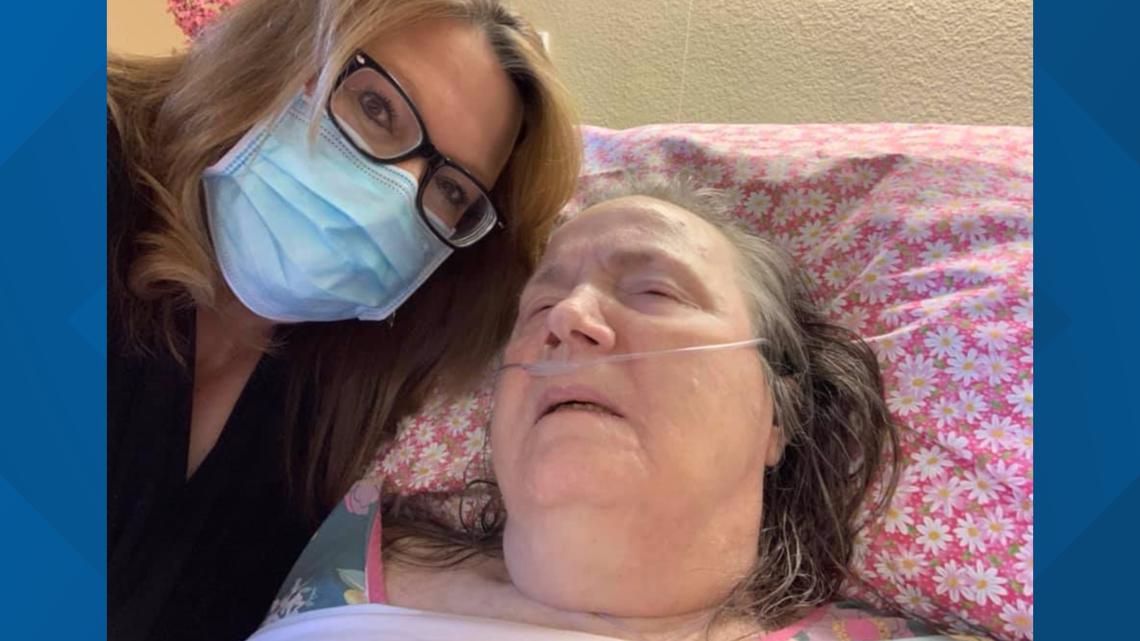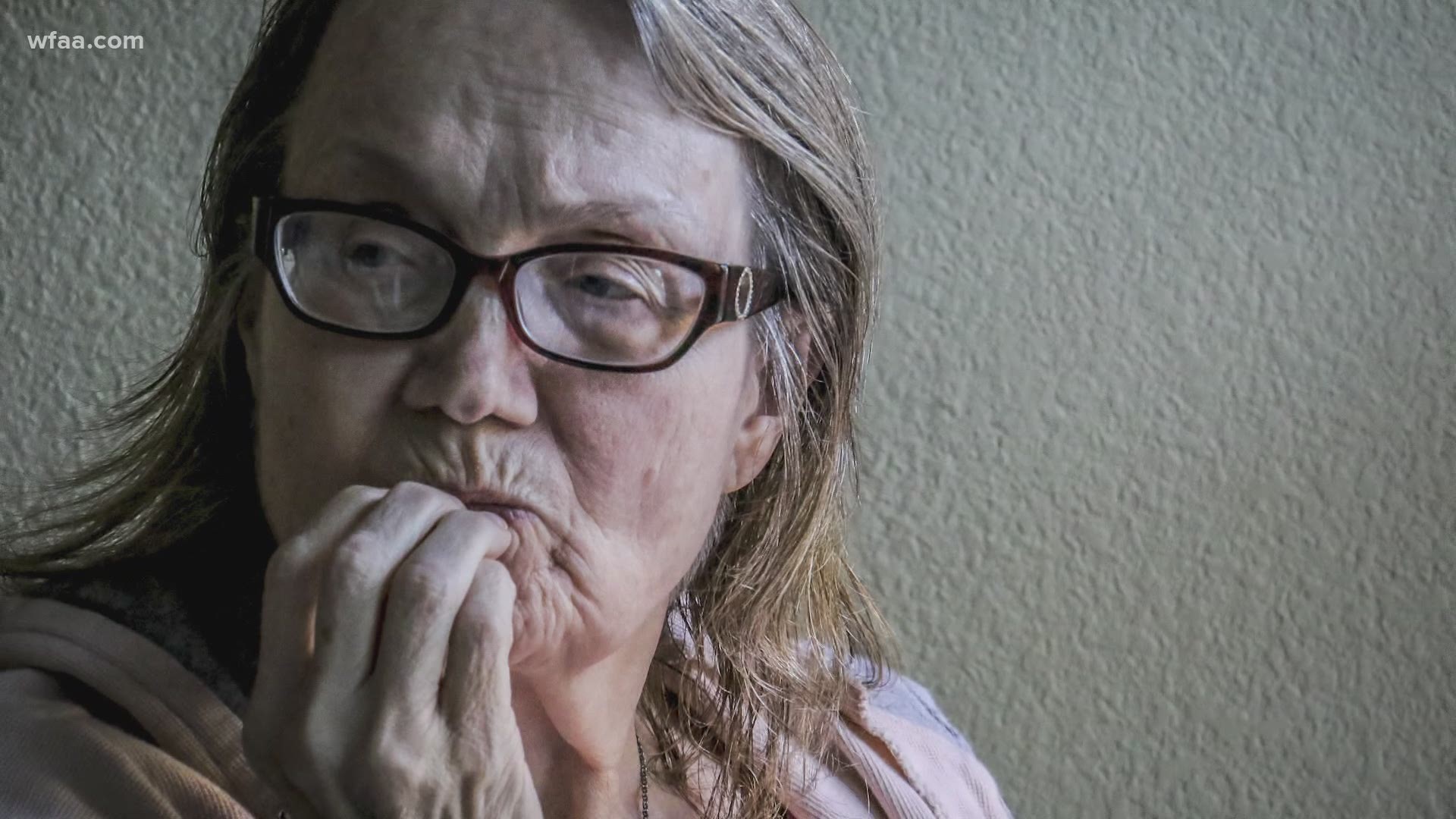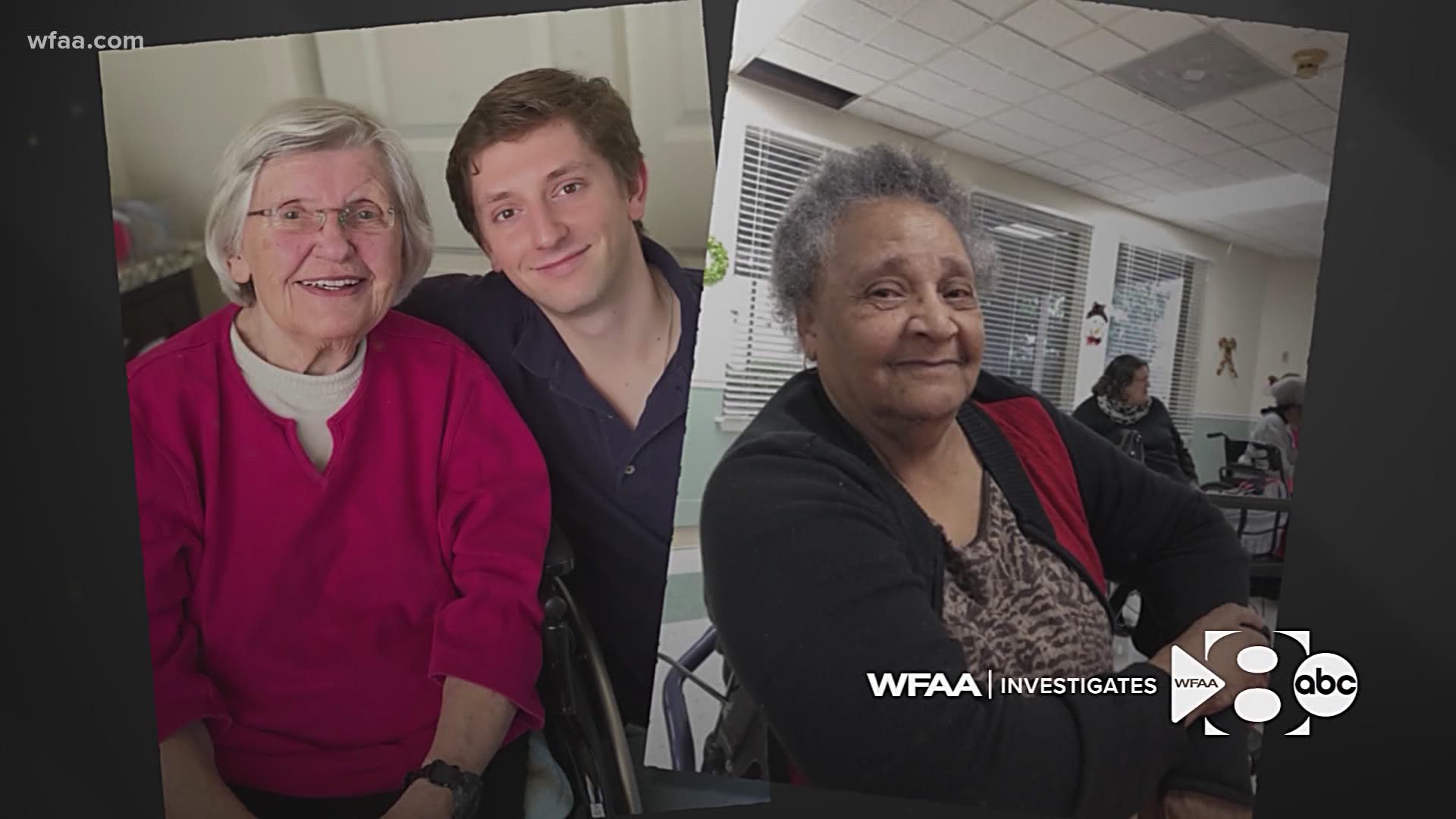DALLAS — Time spent with her Aunt Earline means the world to Lori Tittle.
Earline, a retired secretary and mother of twin sons, suffers from dementia. She moved in to a North Texas long-term care facility in February. Just four weeks later, Texas nursing homes went on lockdown and Tittle could not get in to see her.
"The isolation has been just horrible on her,” said Tittle.
A few months ago, Tittle finally began getting in to see her aunt for limited visits as an essential caregiver. With the prospect of a vaccine becoming available soon, Tittle hopes it will mean she can spend more time with Earline.
She told WFAA that she has some trepidation about her aunt taking a COVID-19 vaccine, but the family’s decided Earline will take it once it’s available.
“I'm hoping that this does protect our elderly, where we can go back and visit them and we can let them see their family members, because she is forgetting more and more each day,” Tittle told WFAA.
On Wednesday, Texas Governor Greg Abbott announced that 1.4 million doses of a COVID-19 vaccine are expected to become available as soon as mid-December.
But it could be a while before the 276,000 residents of long-term care facilities get the vaccine.
In front of them are an estimated 1.6 million health care workers, 114,000 law officers, 68,000 firefighters and nearly a million teachers, according to a power point presentation produced by the Texas Department of Human Services.
“Right now, they are below morticians and school nurses and pharmacists and those are not a people group that have suffered the devastating loss that long-term care residents have seen,” said Mary Nichols of Texas Caregivers for Compromise.
“Long-term care residents have made up such a large portion of illness and death. I really feel like they need to be at a higher priority than they are right now,” said Nichols.
The Forney resident founded the group, which now numbers some 3,100 members, after Texas locked down its long-term care facilities and refused to allow family members to visit their loved ones. Her group successfully convinced the state to allow limited visitations from essential caregivers.
Her mother is an Alzheimer’s patient, and currently has COVID-19 but is asymptomatic.
Like Tittle, she went 202 days without being able to visit her mother.
“When I did go back in to see her, she was a glassy-eyed shell of a human being,” she said.


Nichols said getting a vaccine to long-term care residents is crucial to fully restoring their rights.
During the pandemic, residents have lost the right to choose their own physician, to use their own property, the right to worship, the right to refuse certain treatments and the right to leave the facility and participate in outings, she said.
“These are residents that don’t have a lot of time left,” Nichols said. “The average amount of time depending on who you ask is between one and two years once they move into a long-term care facility. If they only have a year, we’ve already taken three quarters of their life… So, it’s a lot more than just about vaccinating them, it’s about restoring their rights, and it’s about preserving what’s left of the life remaining them.”
Nichols said family members also perform more menial tasks, such as brush their teeth or cleaning their dentures, that overworked health care workers don’t have time to do.
Her group has compiled a book of dozens of accounts of family members telling stories about what happened to their loved ones while they were locked out of long-term care facilities. Click here for more information on the book.
The accounts details the mental, emotional and physical decline that befell their loved ones. When someone purchases the book, it is then sent to a Texas lawmaker. The goal is to send copies of the book to every legislator, said Nichols.
Her group is pushing for lawmakers, among other things, to restore resident rights, to end emergency rules and waivers and prohibit long-term care facilities from restricting the rights of long-term care residents.
“Our loved ones in long-term care facilities, they're not numbers,” Nichols said. “We’ve approached COVID-19, the isolation and in the protocols from a very scientific and very mathematical perspective. What we’ve left out is the humanitarian perspective.”
Susan Swain, 73, also has no doubt she will take a vaccine once it’s available. She has respiratory issues, congestive heart failure and takes oxygen around the clock.
“We need it very desperately and we need it quickly,” she said.


